How to Teach Kids Accountability Through Natural Consequences
28 November 2024
As parents, we all want what’s best for our children. We want them to be responsible, respectful, and well-behaved little humans. But how do you instill these qualities in your kids? One powerful way to teach them accountability is by letting them experience natural consequences. But don’t worry—I’m not saying you should just stand by and watch as your kids make mistake after mistake without stepping in. Instead, guiding them through their actions and allowing them to learn from their consequences can help build lasting responsibility.
In this article, we’ll dive into how you can teach kids accountability using natural consequences, why this approach works, and practical strategies for implementing it.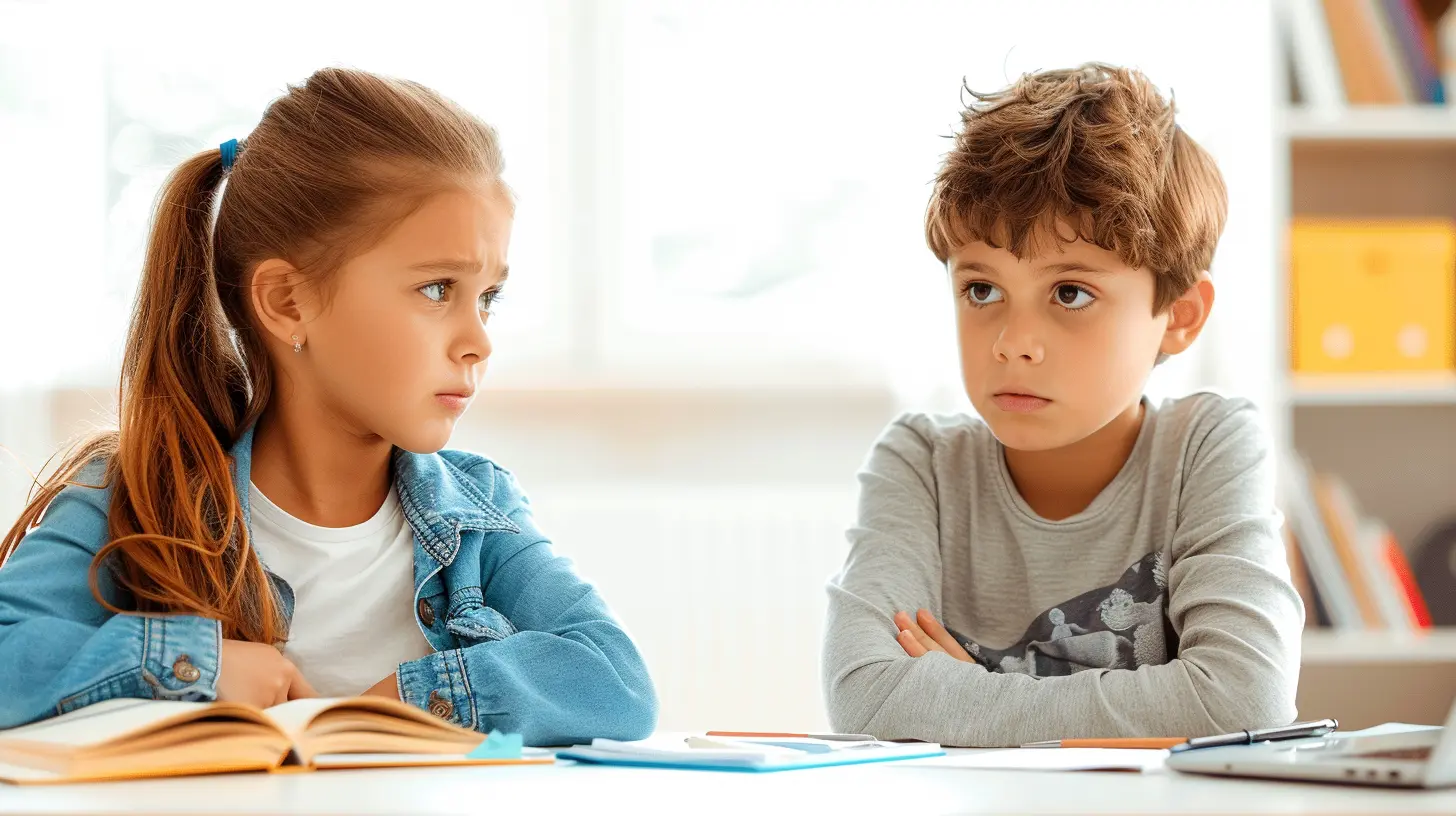
What Are Natural Consequences?
Kids aren’t born knowing how the world works. They learn by doing, observing, and yes—sometimes by making mistakes. This is where natural consequences come in.Natural consequences are the outcomes that happen as a direct result of a child’s actions, without parental interference. For example:
- If your child refuses to wear a coat on a chilly day, they’ll feel cold.
- If they leave their toys outside and it rains, their toys might get ruined.
These real-life outcomes can be powerful teachers. Instead of punishing your child or forcing them to behave in a certain way, you allow life to naturally show them the outcomes of their actions.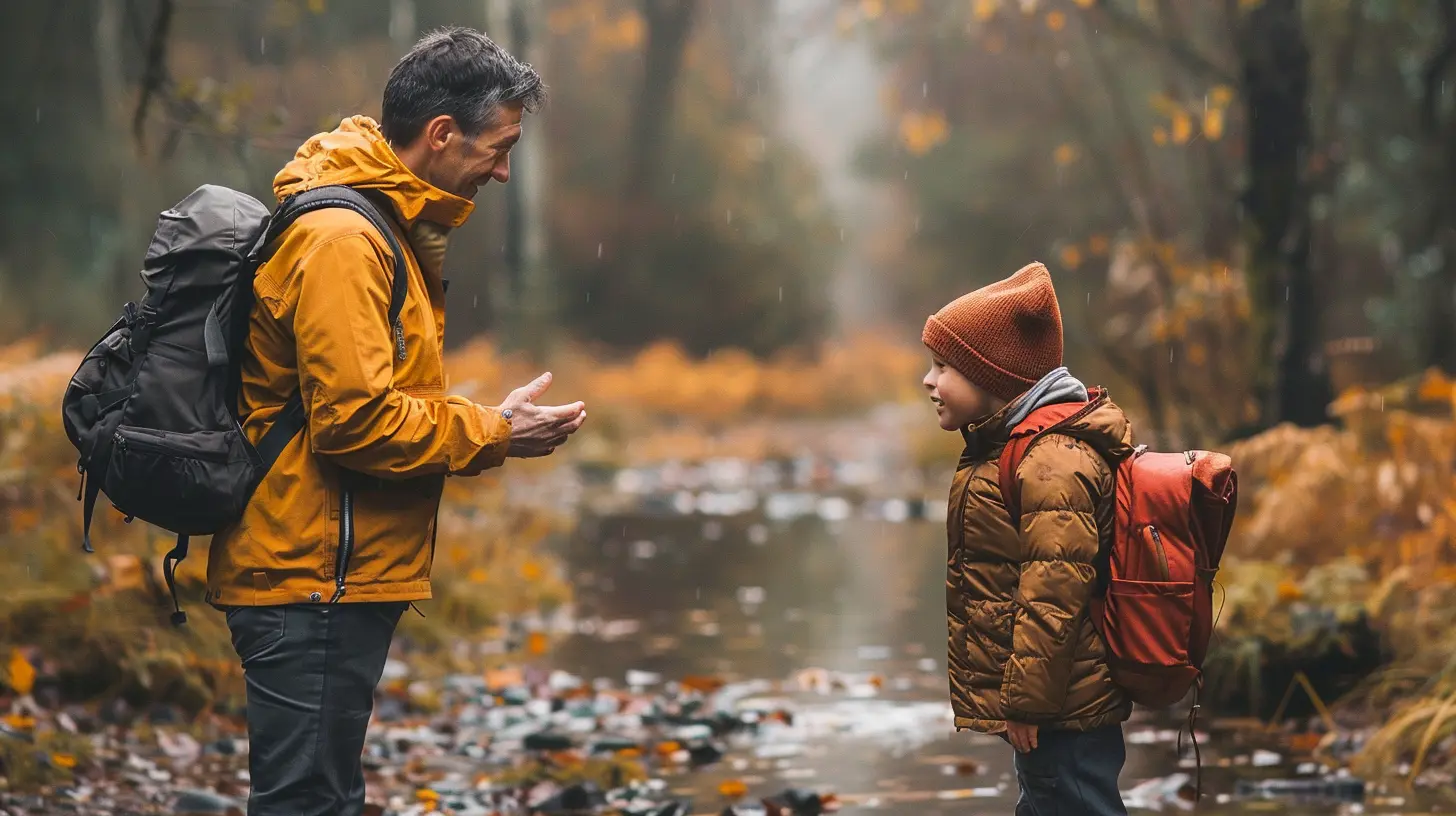
Why Natural Consequences Work
Natural consequences are effective because they’re tied to the real world. Rather than you swooping in with arbitrary punishments or lectures, your child experiences the outcome that directly relates to their choices. This makes the lesson more meaningful and longer-lasting.Here’s why this approach is beneficial:
1. Develops Responsibility
When your child experiences the consequences of their actions, they learn that they are in control of what happens to them. This fosters a deeper sense of responsibility. Instead of blaming others or external factors, they begin to understand how their actions impact their life.2. Teaches Cause and Effect
Kids are naturally curious, and understanding cause and effect is key to growing up. Natural consequences offer clear examples: if they do A, then B happens. This makes learning more straightforward and less abstract.3. Fosters Independence
By allowing natural consequences to take their course, you’re giving your child the space to make their own choices and learn from them. This can help your little one develop independence, self-discipline, and confidence in decision-making.4. Encourages Problem-Solving
When kids face the consequences of their actions, they have to figure out how to fix things. Did they forget their homework at school? They’ll have to brainstorm ways to complete the assignment or accept the lower grade. Problem-solving becomes a skill they naturally practice.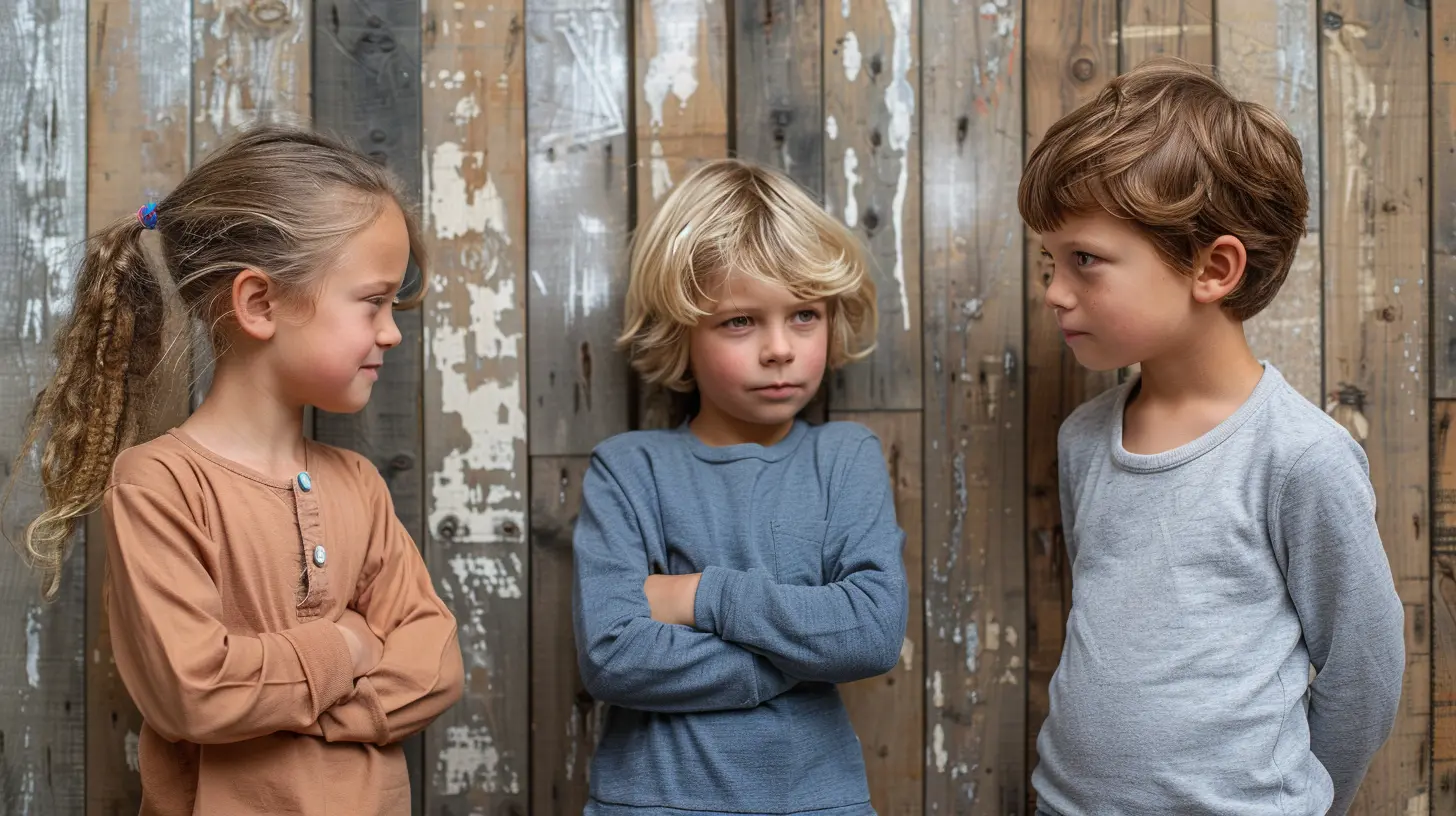
How to Implement Natural Consequences in Daily Life
Now that you understand why natural consequences are important, you're probably wondering how to integrate them into your day-to-day parenting without chaos taking over. It’s all about balance, consistency, and communication.1. Start Small
Begin by allowing natural consequences for smaller, manageable choices. You don’t want to implement this with something major right away, like letting your child fail an important test because they didn’t study. Ease into it by allowing natural consequences to take their course for things like forgetting a jacket or being late to a play date.2. Stay Calm and Stay Out of It
Our parental instinct is often to jump in and save our child from discomfort or frustration. But to use natural consequences effectively, you need to resist that temptation. Step back, stay calm, and let the consequence play out. This doesn’t mean you’re being neglectful—you’re simply letting them figure it out.For example, if your child refuses to wear their new shoes to school and insists on wearing poorly suited ones, let them experience the discomfort. Later, instead of saying “I told you so,” let them share how the shoes affected their day. This can spark a conversation about future decisions.
3. Help Them Reflect
Reflection is key to learning. After they’ve experienced a consequence, take the time to talk it through with them. This can be as simple as saying, “What do you think might have worked better next time?” This way, your child is practicing analyzing the situation and preparing to make better choices in the future.Don't make it an interrogation session; be conversational, non-judgmental, and honest. You might even share a personal story of when you faced a similar situation to make it relatable.
4. Set Boundaries When Necessary
While natural consequences are great teachers, there are times when boundaries are still necessary. A natural consequence doesn’t apply when your child’s safety is at risk. For example, if they try to run across a busy street, you can’t just let the natural consequence happen! In these cases, you need to step in and set firm boundaries to keep them safe.Use natural consequences where they make sense—but don’t hesitate to step in and take control if safety, major life impacts, or other serious issues are at play.
5. Balance with Logical Consequences
Sometimes, a situation calls for what we call "logical consequences.” These occur when you create a consequence that logically connects to the misbehavior. For example, if your child draws on the wall, the logical consequence would be having them clean it up.Logical consequences are parent-imposed, but they tie directly to the child’s action, fostering accountability. The key is consistency and ensuring that the consequence feels fair and related to the behavior.
6. Be Consistent
One of the most crucial things you can do when using natural consequences is to be consistent. If you let your child experience natural consequences one time but step in the next, it can be confusing. Kids thrive on predictable responses from parents. If they know that their choices will result in real-life outcomes, they’ll start to make better decisions over time.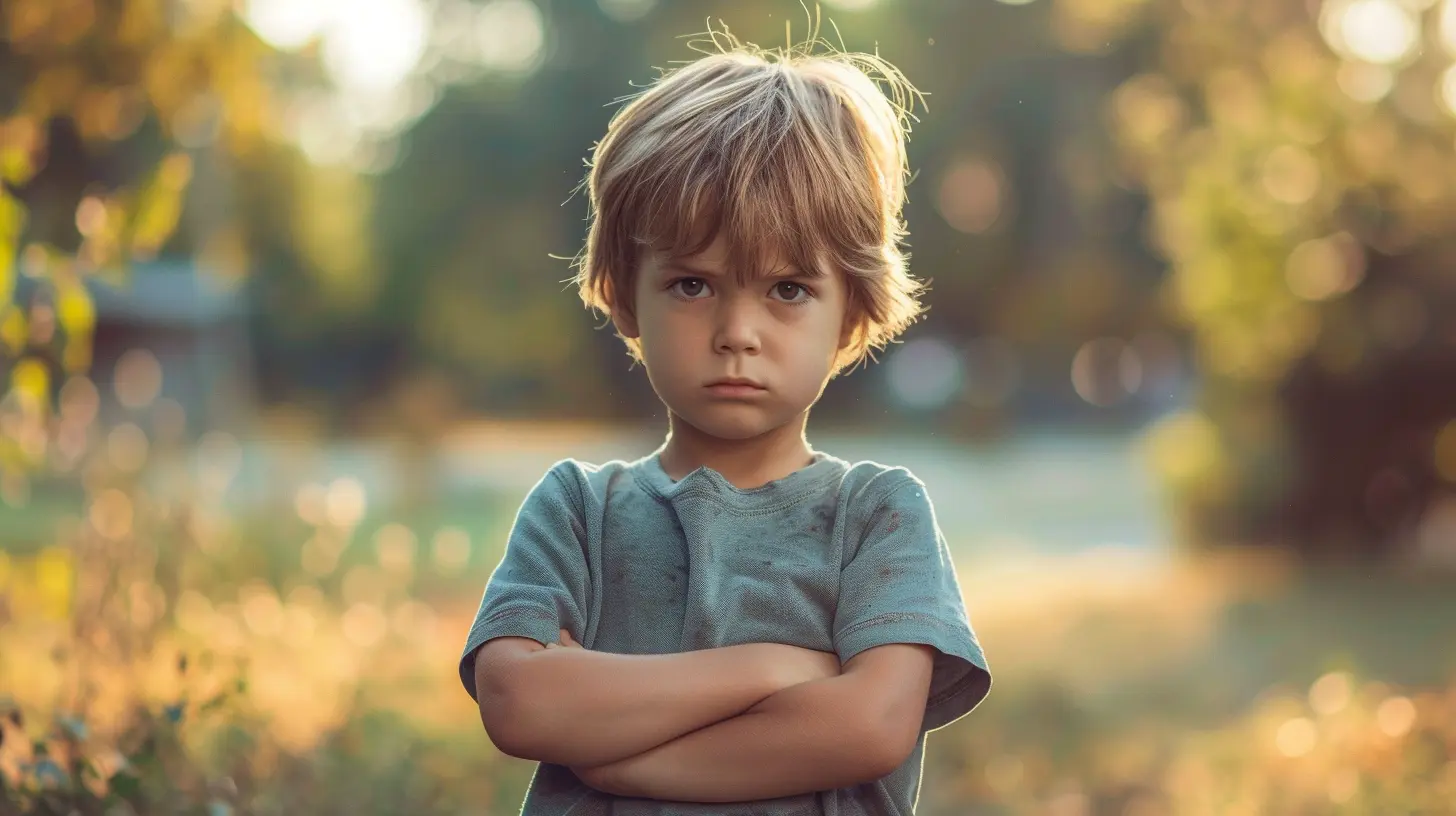
Common Scenarios and How Natural Consequences Can Be Used
You might be thinking, “This sounds great in theory, but how do I apply it to my daily life?” Don’t worry—I’ve got you covered. Below are a few common parenting situations where natural consequences can play a role, along with how you might handle each one.1. Refusing to Do Homework
Natural Consequence: If they don’t complete their homework, they get a lower grade.Your Role: Instead of nagging, let them experience the results of not doing the work. Later, guide them in creating a plan to manage their schoolwork better.
2. Not Putting Away Toys
Natural Consequence: Toys left out can be stepped on, broken, or lost.Your Role: Don’t rush to clean up for them. If their favorite toy gets damaged, that’s a learning opportunity. They may be more inclined to take care of their belongings next time.
3. Leaving Their Lunch Behind
Natural Consequence: No lunch at school might mean they go hungry.Your Role: Be empathetic but resist the urge to bring their lunch to them. They’ll be more likely to remember it next time after missing out once.
4. Not Wearing a Coat in Cold Weather
Natural Consequence: They’ll feel cold and uncomfortable.Your Role: If it’s not dangerously cold, let them experience this discomfort. It’s a harmless way to teach them the importance of dressing appropriately.
Natural Consequences: Balancing Accountability and Compassion
While natural consequences can be beneficial, it’s essential to approach them with balance, combining empathy and understanding. Remember, the goal isn’t to make your child suffer; it’s to help them learn. We all make mistakes, and your child will too. Be there as a guide who offers understanding and compassion while still holding them accountable for their actions.A major part of this balancing act is showing empathy when your child faces a consequence. If they mess up and feel upset afterward, show them that you understand. Saying something like, “It looks like you didn’t have a good day because of what happened. What can we do differently next time?” can validate their feelings while also encouraging them to think ahead.
Wrapping Up
Teaching your kids accountability isn’t about being strict or authoritarian—it’s about giving them the tools they need to take responsibility for their actions. Natural consequences allow them to see firsthand how their choices impact their lives. By stepping back and letting life teach its own lessons, you're equipping your child with essential life skills that will last a lifetime.So, next time you’re tempted to swoop in and fix everything, take a deep breath and let nature take its course (as long as it’s safe to do so). Your child will be better for it, and you’ll have less stress on your plate.
all images in this post were generated using AI tools
Category:
Discipline TechniquesAuthor:

Maya Underwood
Discussion
rate this article
14 comments
Zinnia Daniels
This article beautifully illustrates the power of natural consequences in fostering accountability in children. By allowing them to experience the results of their actions, we can help them develop a sense of responsibility and decision-making skills that will benefit them throughout their lives. A must-read for parents!
February 11, 2025 at 5:34 PM

Maya Underwood
Thank you for your positive feedback! I'm glad you found the article helpful in understanding the importance of natural consequences in teaching accountability.
Kestrel McGinnis
How do natural consequences effectively encourage kids to take responsibility for their actions?
January 31, 2025 at 5:12 AM

Maya Underwood
Natural consequences help kids understand the direct link between their actions and outcomes, fostering a sense of ownership and responsibility. When they experience the results of their choices, they learn valuable lessons that encourage better decision-making in the future.
Elowis Forbes
I love this approach! Teaching kids accountability through natural consequences is such a gentle yet effective way to help them learn and grow. Great tips!
January 29, 2025 at 5:07 PM

Maya Underwood
Thank you! I'm glad you found the tips helpful. Teaching kids through natural consequences truly empowers them to understand their actions!
Daria Jacobs
Great insights! Teaching accountability through natural consequences truly fosters resilience and understanding in our children. Thank you!
January 27, 2025 at 3:57 AM

Maya Underwood
Thank you for your kind words! I'm glad you found the insights valuable in promoting resilience in children.
Rosalind Benton
This article beautifully highlights the importance of natural consequences in teaching accountability. By allowing children to experience the results of their actions, we foster resilience and responsibility. A practical approach that empowers kids to learn from their mistakes, shaping their character for life.
January 23, 2025 at 3:28 PM

Maya Underwood
Thank you for your thoughtful comment! I'm glad you found the article resonates with the idea of using natural consequences to cultivate resilience and responsibility in children.
Haze McGowan
This article offers a refreshing perspective on teaching accountability! I love the idea of using natural consequences as a learning tool. It’s fascinating how real-life experiences can shape understanding. I’m curious to hear more examples of how this has worked for other parents!
January 19, 2025 at 3:48 PM

Maya Underwood
Thank you for your thoughtful comment! I'm glad you found the perspective refreshing. I’ll definitely share more examples of how parents have successfully used natural consequences in their teaching. Stay tuned!
Brandon McAuley
Great insights! Emphasizing natural consequences helps kids understand responsibility. Adding examples can further clarify these concepts for parents navigating this challenge.
January 18, 2025 at 5:12 AM

Maya Underwood
Thank you for your feedback! I appreciate your suggestion about including examples to enhance understanding for parents.
Talia Morris
Natural consequences: the ultimate parenting ninja move!
January 7, 2025 at 4:20 PM

Maya Underwood
Absolutely! Natural consequences empower kids to learn from their choices, fostering responsibility and independence. It’s a powerful tool in building accountability.
Bear Conrad
Natural consequences foster responsibility; children learn best through real-life experiences and reflection.
December 25, 2024 at 3:25 PM

Maya Underwood
Absolutely! Natural consequences provide invaluable lessons that help children develop a sense of responsibility and understanding of their actions. Real-life experiences encourage deeper reflection and personal growth.
Emery Taylor
“Natural consequences are life’s best teachers—like letting your child discover that a wet sock is a lot less comfortable than a dry one. It’s all fun and games until the lessons hit home. Accountability is a messy but vital journey!”
December 18, 2024 at 5:01 AM

Maya Underwood
Absolutely! Natural consequences provide invaluable lessons that help children understand the impact of their choices, fostering accountability in a meaningful way.
Isla McNair
Great article! I love how you emphasize letting kids experience natural consequences. It’s such a valuable way for them to learn responsibility—and I’ve seen it work wonders with my own kids!
December 11, 2024 at 3:26 AM

Maya Underwood
Thank you so much for your feedback! I'm glad to hear that you've seen success with this approach in your own parenting.
Hugo Stevens
Teaching kids accountability through natural consequences fosters resilience and critical thinking. By allowing them to experience the outcomes of their choices, we empower them to learn firsthand valuable life lessons. This approach nurtures independence and encourages thoughtful decision-making, ultimately preparing them for the complexities of adult life. Embrace the journey!
December 5, 2024 at 4:20 PM

Maya Underwood
Thank you for your insightful comment! Emphasizing natural consequences truly equips kids with essential life skills and prepares them for future challenges. Your support of this approach is greatly appreciated!
Etta Shaffer
Teaching kids accountability through natural consequences fosters responsibility and decision-making skills in everyday scenarios.
December 2, 2024 at 4:29 PM

Maya Underwood
Thank you! You're absolutely right—natural consequences are a powerful way to help children develop responsibility and enhance their decision-making skills.
Francesca Green
Love this approach! Teaching through natural consequences feels so much more effective—and relatable—than lecturing. Kids really learn best that way!
November 29, 2024 at 3:36 AM

Maya Underwood
Thank you! I completely agree—natural consequences provide valuable learning experiences that resonate with kids and foster true accountability.
MORE POSTS

Teaching Your Kids Independence While Staying At Home

How to Teach Kids the Difference Between Rules and Boundaries

Emotional Wellness in Kids: Tips for Open Communication

How to Stay Calm When Disciplining Your Child

Turning Chores into a Game: Creative Ways to Engage Kids

Helping Your Overtired Baby Wind Down for Sleep

Potty Training Essentials: Must-Have Tools for Success
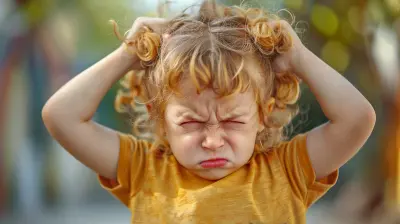
Helping Toddlers Manage Frustration Without Meltdowns

Age-Appropriate Chores for Every Stage of Childhood